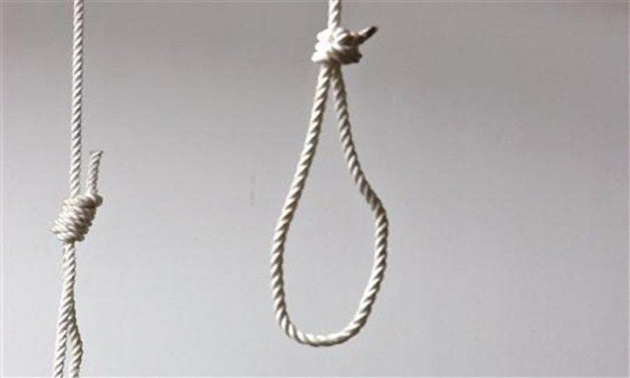
George Stinney, a 12-year-old black boy, was electrocuted in South Carolina in 1944 for the murder of two white girls, aged seven and 11. He was the youngest person executed in the United States.
More than 70 years later, a judge threw out the conviction, calling it a "great injustice." The words did nothing to help George, who had already been killed by the state.
More recently, in 2014, the family of a Chinese teenager lived through unimaginable emotions when their already executed son was declared innocent, 18 years after the date of the crime.
Wrongful executions are a common phenomenon. And in a country like Pakistan, where investigation and evidence gathering is still in its embryonic stages, and corruption quite rampant, sometimes the truth of the deceased being innocent never comes to our knowledge, even decades later.
Also read: ATC issues black warrant for Shafqat Hussain, to be executed on March 19
Arguments against death penalty
Those against the death penalty have powerful reasons for not supporting it. Just three of them are:
1
The right to life is one’s supreme and most inalienable right, and any exception to it must be narrow and well-founded.
As Amnesty International (AI) says, the death penalty legitimises an irreversible act of violence by the state and will inevitably claim innocent victims. As long as human justice remains fallible, the risk of executing the innocent can never be eliminated.
According to AI, in USA, 130 people sentenced to death have been found innocent since 1973 and thereafter released from death row.
2
The idea of retribution is against human rights.
Camus and Dostoevsky have argued that retribution in the case of the death penalty was not fair, because the anticipatory suffering of the criminal before execution would probably outweigh the anticipatory suffering of the victim of their crime.
Further, the long periods spent in jail before the actual execution constitutes inhumane and degrading treatment. This concept is now called the “death row phenomenon” in Europe and recognised as “double punishment” by Pakistan’s Shariat Court.
3
Capital punishment does not deter crime.
Surveys and studies such as that conducted by the United Nations in 1988 show that capital punishment does not deter crime. An increase in the likelihood of being caught and the rehabilitation for first-time offenders certainly do deter it, though. The focus on punishment takes the state’s attention away from these other important goals.
These are just some of the global arguments against the death penalty. But the particular conditions and context of Pakistan lend each of these multifold importance. It is disappointing that the moratorium on death penalty has been lifted off all capital cases now.
Since the Peshawar attack, Pakistan has hanged 24 convicts on charges related to “terrorism” – a net wide enough to capture an atrociously large number of offences under the Anti-Terrorism Ordinance.
Why lifting the moratorium off all offences is not right
Removing the moratorium for all other offences may be worse. These are some main reasons why:
1
Pakistan's criminal justice system has been called faulty, ineffective, exploitative and archaic. Yet, it metes out the highest form of punishment to convicted offenders.
Our lower courts tend to be pro-prosecution and and often ignore mitigating points, such as age and insanity. Malicious prosecution is common. The police are not only responsible for lodging the first report of the offence; they are also the investigative authority in order to conduct investigations for offences and crimes.
All this makes the trial against the defendant biased from the very start. As per the Transparency International’s report, the police and court systems are supposed to top the list of corrupt institutes in Pakistan.
2
It is always the poor majority of Pakistanis which bear the brunt of the faulty justice system.
For the poor, lodging FIRs is an ordeal, paying legal fees a bigger ordeal and suffering the endlessness of the trial the biggest one. Unable to hire themselves a lawyer, they are often left at the mercy of legal aid provided by the government and a government-appointed prosecuting lawyer who has far less experience and interest in the case.
Furthermore, Pakistani procedures, laws and rules are all written in the English language, while the language spoken by the majority and the national language is Urdu. In spite of translations available, the alternate versions of laws get lost in translation, create discrepancies and inaccuracies.
3
Pakistan not only has the death penalty for grievous crimes like murder, it is prepared to hang people for a total of 27 separate offences.
The death sentence is likely to have a much smaller number of proponents in Pakistan if more people were aware of that fact.
4
Minors cannot escape the threat of being killed by the state.
Figures published just one year before Pakistan imposed this on executions in 2008 demonstrated that at least 40 children have been awaiting execution in the death cells of Sargodha Jail alone.
Also read: Would we hang a 14-year-old 'terrorist'?
'Beyond the shadow of reasonable doubt'
Article 10-A of the Constitution of Pakistan furnishes a fundamental right to every citizen of Pakistan to have a fair trial and due process. The principle narrated by the higher courts is that the case against an accused should be proved not just beyond reasonable doubt but also “beyond the shadow of reasonable doubt”.
There is also a strong presumption of innocence under Islamic Shariah Law. In the authority of the Sunnah we find the direction that it is better for an official to pardon erroneously than to punish erroneously. The seriousness of this rule can be understood by the fact that it applies to both, tazir and hadd crimes.
The heart bleeds to know Pakistan has lifted the moratorium on the death penalty for all offences today. It is a painful reminder that the justice system in Pakistan is only getting worse, we are only moving backwards.



